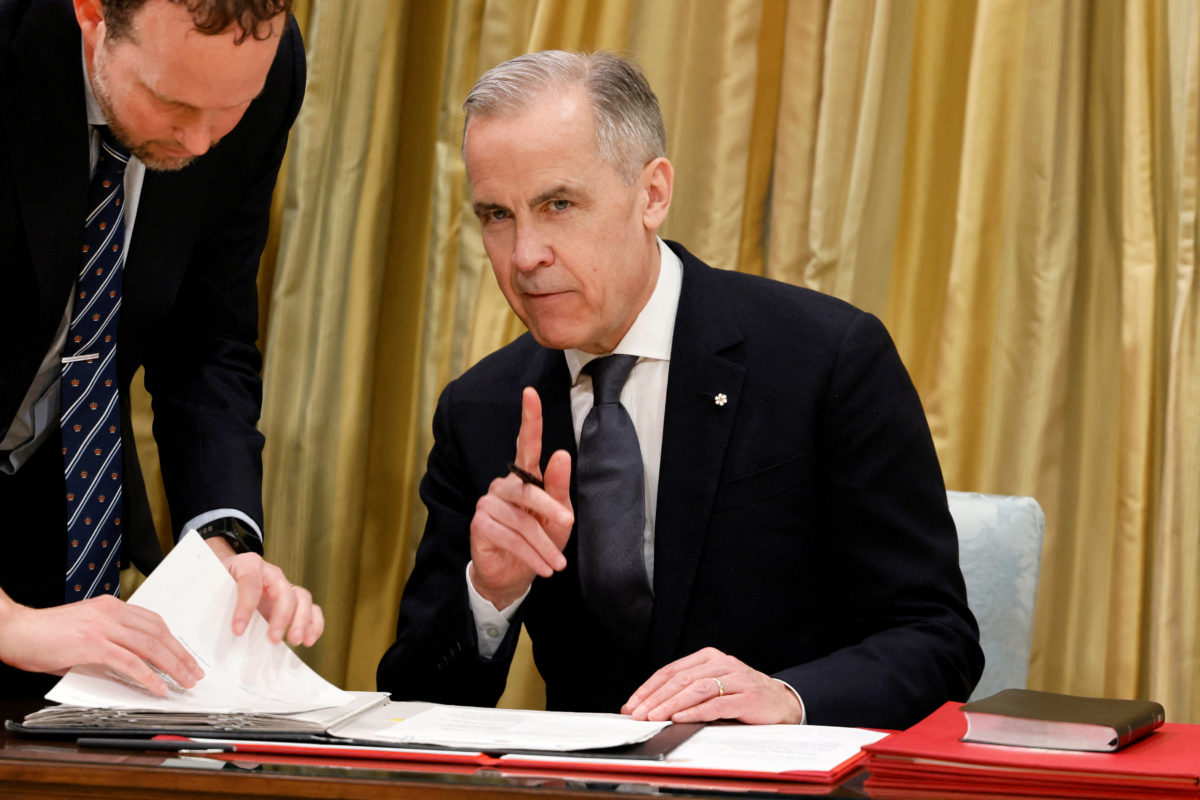Wow, that was fast. Mark Carney’s first act as our 24th Prime Minister was to sign an order in council effectively eliminating Canada’s Carbon Tax.
It’s not surprising. The carbon tax had become toxic, and in eliminating it, Carney has taken away the biggest stick Pierre Polievre had been using to beat Justin Trudeau around the head with.
So what exactly was Carney’s first act as Prime Minister, and what are the implications for Canada’s climate goals?
What did Carney do?

To be clear – Prime Minister Carney only ended the consumer elements of Canada’s carbon pricing policy.
Eliminating the fuel surcharge should reduce the cost of a litre of gasoline by about 17 cents and reduce the cost of a cubic metre of natural gas by a little more than 15 cents. It will be interesting to see if gas prices actually fall by those amounts in the next few weeks.
Also after April 15, Canadian households under the federal plan will no longer receive the quarterly rebate cheques they’s been enjoying.
Who does this affect?
Most of the country was subject to the Federal Fuel Surcharge, with the exception of Quebec, BC and the Northwest Territories.
Remember, Canada’s federal system of carbon taxes is a system of last resort. Canada’s provinces and territories can set up their carbon pricing policy so long as it adheres to the minimum standard of the federal policy. If they don’t, then the federal system applies.

Every province in Canada runs their own industrial carbon price policy – except for PEI, Manitoba, Nunavut and the Yukon. Nothing has changed in this respect so far.
Quebec, BC and the Northwest Territories have their own consumer carbon price policy. With the federal announcement, BC says they will soon scrap their fuel surcharge as well.
No word yet on Quebec or NWT. In the case of Quebec – I’ll bet it is unlike there is any change. Quebec has a cap-and-trade carbon pricing system that doesn’t separate into consumer vs. industrial as easily. Quebec forms part of a carbon market alliance with California that will make it more complicated to change. There also seems to be more support for the policy in Quebec generally.
What kind of impact will cancelling the fuel surcharge have on emissions?
Last year, the Canadian Climate Institute produced an analysis of the Canadian climate policies that will have the biggest impact by 2030.
By their analysis, the fuel surcharge was ranked 4th among the policies they assessed, accounting for about 20 megatonnes of emissions reductions by 2030 – about 10% of the total 226 megatonnes forecasted.

The policy with the biggest impact is the industrial carbon tax – which so far remains unchanged.
If you’ve been reading my articles, you’ll know that Canada’s plan already falls short of its goal to cut emissions by 40-45% by 2030. This move makes that situation worse. Like twice as bad.
We’re going to need to replace those lost emission reductions and fast. The question is how?
So what’s next?
It should be no secret that I’ve been a big proponent of the carbon tax. The research I’ve done has convinced me that there is no better policy tool that motivates emission reductions across an entire economy in a manner that is the least costly to taxpayers.
In the end, I’m frustrated that such an effective policy tool was essentially vandalized for the purpose of political gains. I’m also disappointed that most of my fellow citizens fell for it. It seems that people can only understand the most basic of premises (TAXES = BAD) and that adding just one more idea (I GET MORE BACK THAN I PAY) is beyond most people’s capacity to absorb.
Ultimately, the fatal flaw of the carbon tax was a feature its designer thought was critical to its effectiveness – transparency. Our policymakers reasonably concluded that if people were going to change their behaviour, the fuel surcharge had to be visible. People had to know they were paying more for fossil fuels in order to be motivated to save by switching to cleaner options or behaviours.
But it was that visibility that created the opportunity for opposition politicians to use it like a red flag to antagonize a bull. Consider Quebec, where carbon pricing is baked into our economy but in a far less transparent manner. There’s no high-profile rebate to households – and no one makes a peep about it.
It’s too bad – but I think I can get my head around this. If it means that we get to have a government that is committed to cutting emissions in line with science-based targets to prevent the worst effects of climate change, then it’s worth taking a step back to take two steps forward.
But that does not change the fact that this move worsens an already bad situation where our country is not achieving its climate goals.
We all need to be attuned to how Mr. Carney plans to make up that gap – and hopefully go even further.


Leave a Reply